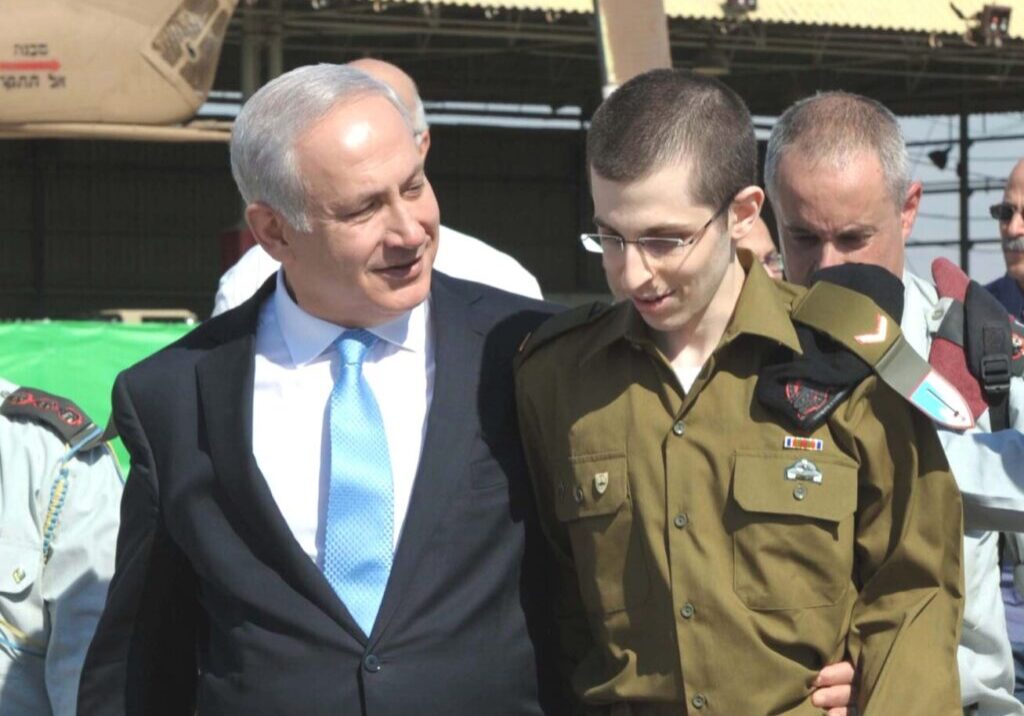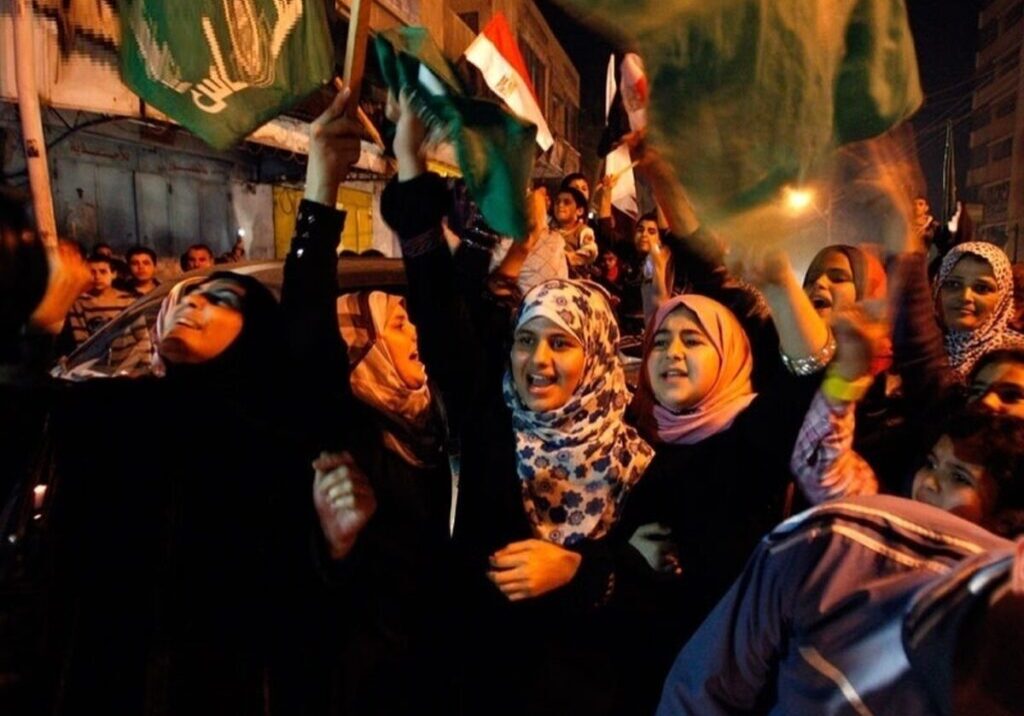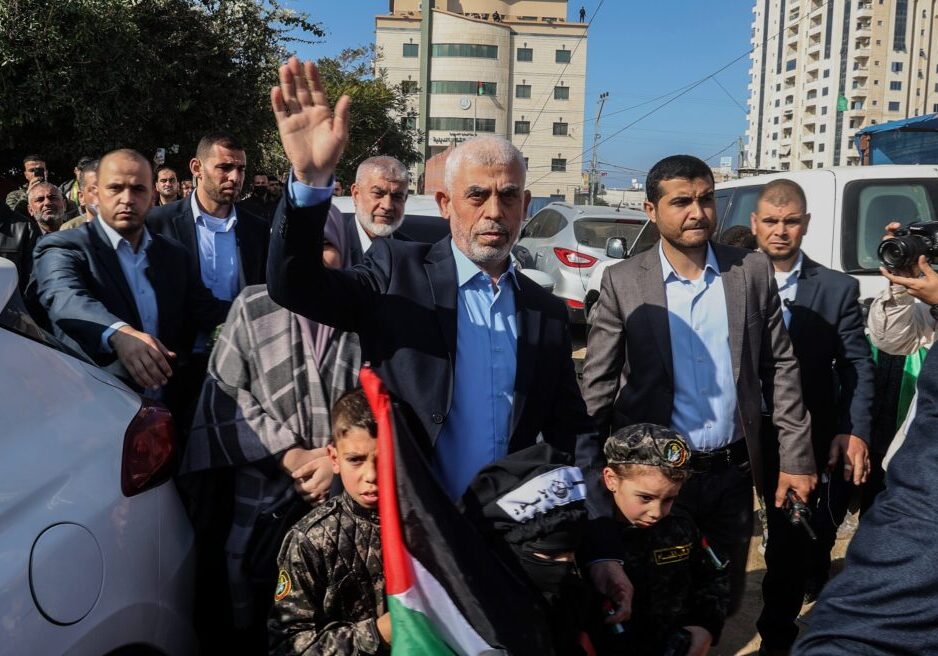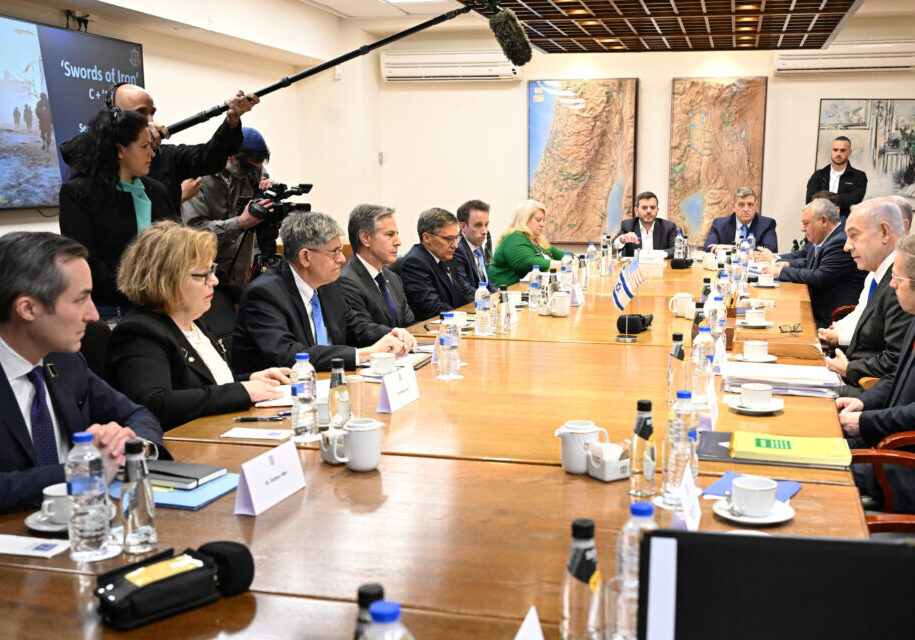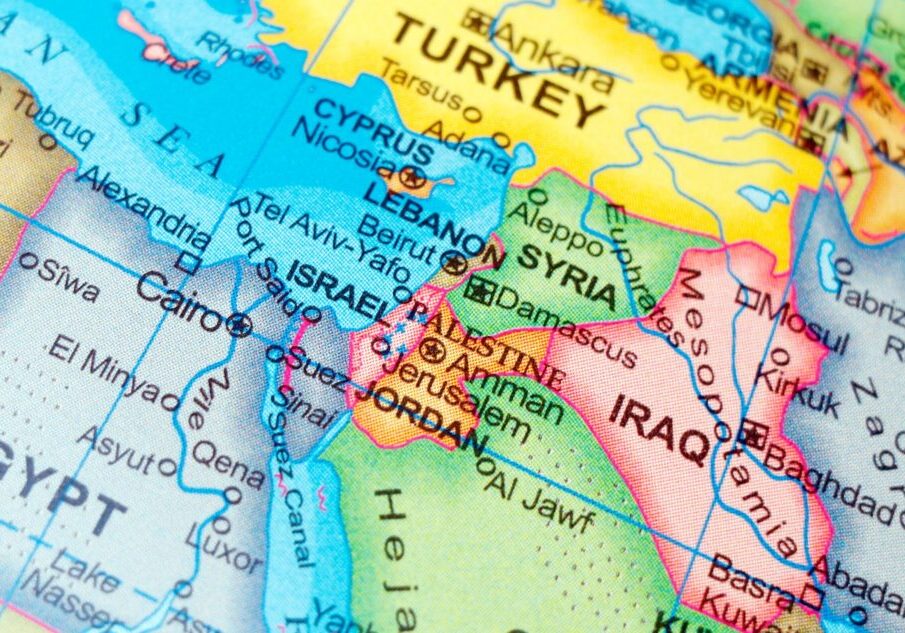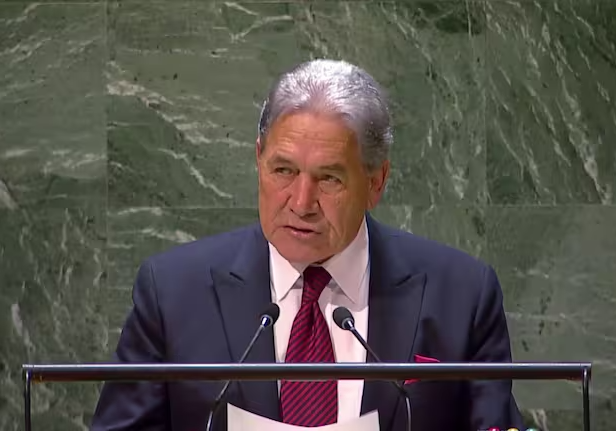Australia/Israel Review
Noted and Quoted – September 2016
Sep 6, 2016 |
Declaring war on a declaration
Executive Council of Australian Jewry Public Affairs Director Alex Ryvchin ridiculed Palestinian Foreign Minister Riyad al-Maliki’s declaration that Palestinians will sue Britain for the 1917 Balfour Declaration supporting a Jewish national home in Palestine.
Ryvchin noted that the Declaration did not give Jews anything but “simply expressed… support for the idea that the Jews, a people indigenous to the land, should be able to return there to reconstitute their national home if they so desired.”
In fact, it was “the League of Nations, the [UN’s] predecessor” that recognised these principles as “binding international pronouncements… long before the Holocaust” thus “mak[ing a] nonsense” of the frequent claim by some pro-Palestinian advocates that Israel was created “to make others pay for their sins in relation to the destruction of European Jewry,” Spectator Australia (Aug. 13).
Sophie’s sequelitis
On ABC TV and Radio (July 30), ABC Middle East correspondent Sophie McNeill returned to her favourite topic – Palestinian suffering in Gaza and alleged Israeli culpability.
Her latest hook was to focus on the challenges of rebuilding homes damaged or destroyed during the 2014 conflict.
On ABC TV “7pm News” in Victoria, newsreader Ian Henderson’s introduction said rebuilding is “painfully slow as Israel tightly controls the importation of building materials,” omitting from responsibility Egypt, which shares a border with Gaza over which Israel has no control.
However, an earlier version on ABC Radio “AM” included McNeill saying that Egypt also enforces a blockade.
The TV report said Israel restricts many building materials with Israeli spokesman Adam Avidan vaguely explaining that Hamas diverts these materials for “military needs.”
The “AM” report was more informative, McNeill explaining that “Hamas, which runs Gaza… have been caught building new attack tunnels that reach from Gaza into Israel.”
The Gaza Reconstruction Mechanism (GRM) involving joint UN, Israeli and Palestinian Authority oversight of cement importation into Gaza was mentioned, but it was implied it is only recent.
In fact the GRM was finalised shortly after the 2014 conflict but Hamas has hampered its implementation.
McNeill said one Palestinian currently rebuilding told her it was “humiliating that Israel first destroyed his home; and now he needs their approval to rebuild it” under the GRM arrangements.
Maybe she could’ve asked if Hamas holds any responsibility, especially considering something “AM” host Elizabeth Jackson correctly noted: the Gaza homes were destroyed during airstrikes “in response to missiles fired towards Israel by Hamas militants.”
Robert Piper, UN Gaza Humanitarian Coordinator, was quoted saying, “the GRM is [not] a substitute for lifting the blockade… the top priority is to get that blockade lifted.” On TV he added that, “we need to call it what it is which is the collective punishment on 1.8 million Gazans.”
Unsurprisingly, McNeill didn’t ask Piper how he can guarantee that lifting a partial blockade won’t lead to further attacks by an entity that has spent 25 years carrying out terror attacks against a country it has repeatedly vowed to destroy.
ABC partial correction
The ABC’s Audience and Consumer Affairs department has made two corrections on the ABC’s “7.30” website following a complaint by AIJAC over two reports by Sophie McNeill that aired on June 15 dealing with Egypt opening its border crossing with Gaza.
The ABC accepted that the “7.30” website had incorrectly described the Gaza Strip as “occupied territory” and that the claim made by the program’s presenter that it is “almost impossible” for anybody to get out of Gaza for “urgent medical treatment” was also inaccurate.
A separate complaint regarding a version of the report on ABC Radio “PM” earlier in the day was dismissed.
The differing results were due to the ABC rejecting all of AIJAC’s points relating to McNeill’s actual reports.
As AIJAC Executive Director Colin Rubenstein explained to the Australian Jewish News (Aug. 19), “we are obviously disappointed and concerned that McNeill’s reporting – which we maintain was partial, sloppy with the facts and lacking in context – was given a clean bill of health.”
“Particularly concerning is the department’s summary dismissal of AIJAC’s complaint that there was scant investigation of Egypt’s enforcement of the [Gaza] blockade and that Cairo was essentially absolved of any responsibility, while the program strongly implied to the viewer that Israel was legally and morally culpable for Gaza’s welfare.”
Rubenstein explained that “the fact that no accusation or attribution of responsibility for Gaza’s situation was made against either Egypt or Hamas was the essence of the bias of the story and part of a larger pattern with McNeill’s reporting.”
He also noted that this was not a one-off but reflected a consistent pattern evident over “the 16 months or so since McNeill started as Middle East correspondent” where “she has filed many stories that look at Palestinian suffering in Gaza, where her coverage focuses on the ‘blockade’ or, indeed, on the West Bank, where the focus switches to ‘occupation’. Individually and over time, her body of stories do not deviate from reflecting the attitude and bias that Israel is predominantly responsible for Palestinian suffering.”
Left behind
Media veteran Nick Cater, who recently visited Israel and the West Bank on an AIJAC Rambam study tour, argued that Palestinian progress is hampered by the fact that “the Palestinian elite and their friends on the international Left forbid even baby steps.”
Normalisation efforts between Israelis and Palestinians “no matter how peaceful or helpful [are] denounced as a sellout,” he noted.
Moreover, Israeli efforts to help “in the West Bank and Gaza… by supplying water, electricity or medical assistance” are “condemned as a Zionist plot. To the anti-normalisation movement any improvement… of the ‘oppressed subjects’ is anathema… because it would destroy the argument that everything bad is the fault of the ‘occupation’.”
Cater noted that developer Bashar Masri, who is building the new Palestinian West Bank city of Rawabi, was “rebuked” by the anti-normalisation activists and “accused of ‘open relations of cordiality’ with ‘numerous Israeli businessmen'” while a project sharing Israeli desert farming techniques with Palestinians was censured because it would “teach… Palestinians to adapt to Israeli occupation instead of challenging these illegal measures’,” Australian (Aug. 2).
Rinse Saikal
According to ANU’s Professor Amin Saikal, “upon assuming the presidency, Obama…had to deal with a hostile Republican-dominated Congress, where Israel’s interests have repeatedly trumped those of the United States. As a result, he…has backed away from securing a resolution of the Israeli-Palestinian conflict as a means to demonstrate that the US is a dispassionate and unbiased player in the region.”
Saikal is betraying his usual inability to comprehend that US support for Israel might conceivably be based on principle and shared interests.
History shows that Obama managed to convince a sceptical Israel to accept several policies and positions that he insisted were necessary preconditions for peace talks. These include Israeli PM Binyamin Netanyahu’s 2009 Bar-Ilan speech backing a Palestinian state, a 10-month settlements building freeze in 2009-10, and a goodwill release of Palestinian prisoners in 2013-14.
History also shows that despite Israel’s concessions for peace, the Palestinian Authority resisted talks and then cut them short at the point actual compromises needed to be made.
Moreover, the past five years of chaos in the Middle East have disproved once and for all the shallow idea that US support for Israel has hampered its own national interests. If anything, Israel has proved itself the one island of stability in the region that the US can depend upon, Canberra Times (Aug. 22).
Wall of Prayer
Former Sydney Great Synagogue Chief Rabbi Raymond Apple discussed the Western Wall, one of Judaism’s holiest sites, from a spiritual perspective.
“Countless visitors bring their own private prayers and requests to the ancient stones. Not all are certain what the word ‘God’ means to them. But everyone… senses the Divine Presence in this place. It is customary to place a folded scrap of paper in the Wall’s crevices” and “ask for Divine support and intervention.”
Rabbi Apple advised against “leav[ing] everything to God. To ask Him to do all the work is to abdicate. As Rav Kook says, it also diminishes the One who created so much talent in each of His creatures. At the same time, don’t try to do it all yourself and leave nothing to Him. That’s just arrogance. Ask for His help,” ABC “Religion & Ethics” (Aug. 23).
Seriously silly
A segment on ABC Radio National “Life Matters” from producer Amal Awad (Aug. 22), looking at the challenges of being an “Arab-Muslim-Australian – Palestinian-Muslim-Australian”, included her stating in all seriousness that Palestine is “a nation the world likes to pretend is non-existent but it exists.”
Seriously? The Palestinians are the only “nation” with their own dedicated United Nations aid agency, plus three other official UN bodies dedicated to their cause – and every year the UN General Assembly passes 20-odd pro-Palestinian UN resolutions. Meanwhile, the number of media organisations based in Israel – there primarily to cover the conflict with the Palestinians – is far in excess of any other comparable conflict zone in the world.
Kurds, Tibetans, Western Saharans, Basques, Tamils – any other group striving for independence would do almost anything for the attention the Palestinians receive.
Israel’s Syrian hospitality
Reporter Aaron Langmaid, who recently travelled to Israel and received briefings organised by AIJAC, profiled former Melbourne surgeon Dr. Michael Harari, who now works at Ziv Hospital in Israel’s north. Since February 2013, his patients have included many individuals injured in the Syrian civil war.
What started as a “trickle”, the report noted, led to “the load… [becoming] so great in the weeks and months that followed, that three more hospitals in the country’s north agreed to take in the wounded. More than 2000 Syrians have crossed the border in the three years since.” Their injuries include “bullet and shrapnel wounds, mangled faces and legs blown apart.”
Dr. Harari explained why Israel offers medical help to citizens of an enemy state, saying, “it’s not of particular interest where they come from or which side of the slender political divide they might be… it’s just that in some ways everybody sets aside their politics outside the front door before they walk in. It doesn’t matter who you are or how you were injured, you are treated equally,” Herald Sun (Aug. 20).
Undesirable record
Executive Council of Australian Jewry research officer Julie Nathan warned against accepting as fact the assertion that “Islamophobia is the new antisemitism”.
Nathan said anti-Muslim bigotry is “bad enough in its own right” without needing to be “artificially magnified by minimising or dismissing antisemitism” – with the additional problem that this claim “implies falsely” that “antisemitism is largely a relic of the past.”
According to hate crime statistics sourced from police reports in North America, Europe and Australia “attacks against Jews continue to occur significantly more frequently than attacks against Muslims,” she noted.
In France, where Muslims outnumber Jews ten to one, 50% of racist attacks are against Jews, Nathan wrote, with the remaining 50% “spread out over other groups including Africans, Arabs, Asians, Muslims, Roma and others.” In the US, in the period 2004-2011, between 58% and 70% of hate crimes were against Jews.
Meanwhile, in Australia, between September 2014 and September 2015, there were 128 anti-Muslim incidents and 180 anti-Jewish incidents involving physical and verbal assaults.
Moreover, “the Jewish community is the only community within Australia whose places of worship, schools, communal organisations and community centres need, for security reasons, to operate under the protection of high fences, armed guards, metal detectors, CCTV cameras and the like. The necessity is recognised by Australia’s law enforcement agencies,” ABC “Religion & Ethics” website (Aug. 5).
Hamad as hell
On the Fairfax “Daily Life” (Aug. 12) blog, anti-Israel columnist Ruby Hamad defended a Lebanese Olympics official’s refusal to let Israeli athletes board a shared bus by listing a whole slew of instances when sport and politics mixed, including the US boycott of the 1980 Moscow Olympics and the 1968 Black Power salute in Mexico.
Unsurprisingly, Hamad overlooked the example of Palestinian terrorists killing 11 Israeli athletes at the 1972 Munich Games in her list of politics in sport.
She said alleged Israeli crimes (most of them false or reasonable security measures responding to terror) justify anti-Israel actions – calling Israel’s occupation of the West Bank “illegal” (actually, UN Resolution 242 recognises Israeli control until its neighbours agree to make peace), saying Israel totally “controls the borders of… Gaza and the Occupied West Bank” and Palestinians “cannot enter or leave Palestinian territory” without Israeli permission (Egypt shares a border with Gaza too – and perhaps Hamad should ask why the PA keeps rejecting Israeli offers of a state incorporating almost all of the West Bank).
She claimed Israel “confiscated” the Palestinian Olympic team’s equipment (it didn’t, the team refused to pay Palestinian taxes on the items) and said Israeli soldiers shot Palestinian footballers in the feet “to prevent them being able to play soccer” (they were Democratic Front for the Liberation of Palestine members carrying a bomb and not shot in the feet).
Elsewhere, columnist Caleb Bond condemned the Lebanese official, writing of his “great disappointment” that “a feeling of anti-Semitism” had crept into the Olympics “with some people seemingly unable to put politics aside for a few weeks.”
He also criticised Egyptian judoka Islam El Shehaby’s refusal to shake hands with his Israeli opponent after being defeated, Daily Telegraph (Aug. 18).
Vacuum sealed
UK Telegraph chief foreign correspondent David Blair noted that an unprecedented decision by Teheran to let Russian jets take off from an Iranian base to strike at targets in Syria is “visible proof of how America’s decision to stay out of Syria – save for operations against Islamic State – has created a vacuum that President Vladimir Putin has seized the opportunity to fill.”
He noted that “not since the revolution in 1979 has Iran allowed a foreign power to conduct military operations from its territory.”
Although the move will allow Russia to launch more raids to prop up Assad, Blair pointed out that the “deployment is not, however, a sign of success. Assad is on the defensive once again in Syria where a new rebel alliance has broken his stranglehold on Aleppo.”
The decision also exposes as a “sham” Putin’s announcement five months ago that most Russian forces were on their way home from Syria and will embolden Assad to believe Russia “will do anything to save his regime,” West Australian (Aug. 18).
Legacy questioned
Roger Boyes attacked the “contortions” US President Barack Obama has made “to keep the Iranian nuclear deal on course.”
This includes giving the Iranians $US 400 million in cash, “apparently in part payment of an almost 50-year-old debt to the Shah’s government” but with “cack-handed timing [that] made it seem like a ransom payment for hostages” Iran was releasing.
The cash, which was untraceable, may have “gone straight to fund the Revolutionary Guard’s expensive war in Syria.”
Moreover, the nuclear deal may have secured Iran’s agreement to curb its enrichment and allow international verification of its program, but it also okayed “Iran’s support for Bashar Assad in Syria, its funding, training and arming of terror groups across the region, the readiness of its Revolutionary Guard to take foreign prisoners and use them in the diplomatic process, its trampling on human rights. Now it is allowing Russia to use its air bases as a platform for strategic bombers.”
After eight years, he concluded, Obama’s legacy is “a new military axis in the Middle East bonded by contempt for Washington,” Australian (Aug. 18).
Tags: Australasia

